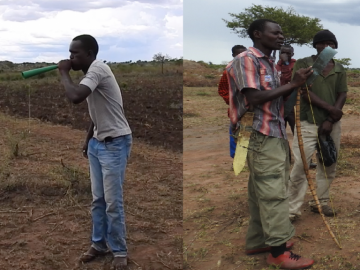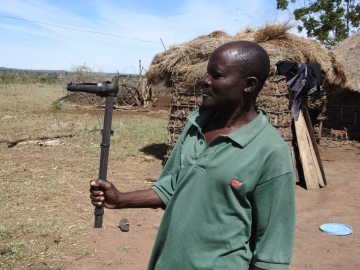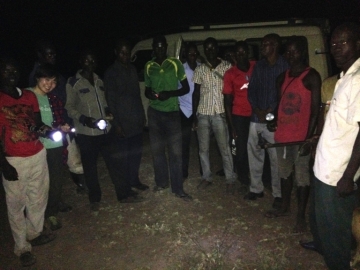Chasing away elephants to save a village
Tue, Jul 25, 2017-
Tags
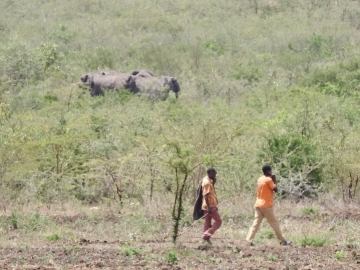
Elephants in the village
Yukino Iwai, an associate professor at Waseda University’s Ikuo Hirayama Volunteer Center (WAVOC), has been working together with students and faculty to address the issue of crop destruction by African elephants. In her recently published book, “Boku no mura ga zou ni osowareru wake [Why my village gets attacked by elephants],” Iwai presents her approach to the issue, including her class at WAVOC called “Volunteering to coexist with African elephants” and her project “Eco-community Tanzania.”
Here, Iwai writes about the details on her experience chasing away elephants, which were not mentioned in the book.
Since the 2000s, African elephants have been recognized as harmful animals that destroy crops in northern Tanzania. Although the elephants were under protection in reserves, they started to invade crop fields for food and have caused casualties from time to time. The villagers are risking their lives to ward off the elephants in order to protect their community, but going against the ten-ton animal is not an easy task. Also, picture this. It’s not just one elephant they are going against but 200 of them. There’s only so much human beings can do.
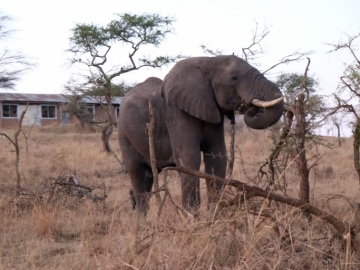
Elephant outside residential area
One February afternoon around 4PM, the villagers and I were patrolling along the wired fence (which our project set up) placed on the border of the village and the reserve, and we saw a herd of six elephants. The elephants hadn’t crossed the fence, but they were sniffing around and looked as if they were bracing themselves to knock down the poles. It was the first time in a while that it had rained the day before, and according to villagers, elephants attack after raining. The corn in the field is only about 50cm long around this time around, which isn’t the best time for elephants to eat. Yet, they still come around, perhaps because of the smell.
About ten young men in the neighborhood were called immediately, and with the weapons of their choice, ranging from whistling, vuvuzelas, firecracker machines, dogs, to bows and arrows, they chased away the elephants. It was 8PM at night when the group finally succeeded in chasing the elephants far away from the fence. I arrived home at 10PM that day.
- Vuvuzela (left) and bows & arrows (right)
- Firecracker machine
- Chasing elephants away until dark
However, the elephants found a gap in the fence and invaded the village once again. 15 of us gathered from eight in the morning to chase them away, but even after three hours, the elephants wouldn’t leave. They would run to the wired fence and come back into the village, being unable to find the gap they came in from. Soon after, the herd of six separated into groups of two and four, and the villagers had to call for additional help from the people in the neighboring area. After going this and that way for ten hours, the elephants finally found and left at six in the evening.
The young men were covered with wounds. After running around for tens of kilometers, some had to use crutches because of sprains, some were dragging their feet from treading on tree roots, and some were burnt from the firecrackers. Above all, everyone was starving.
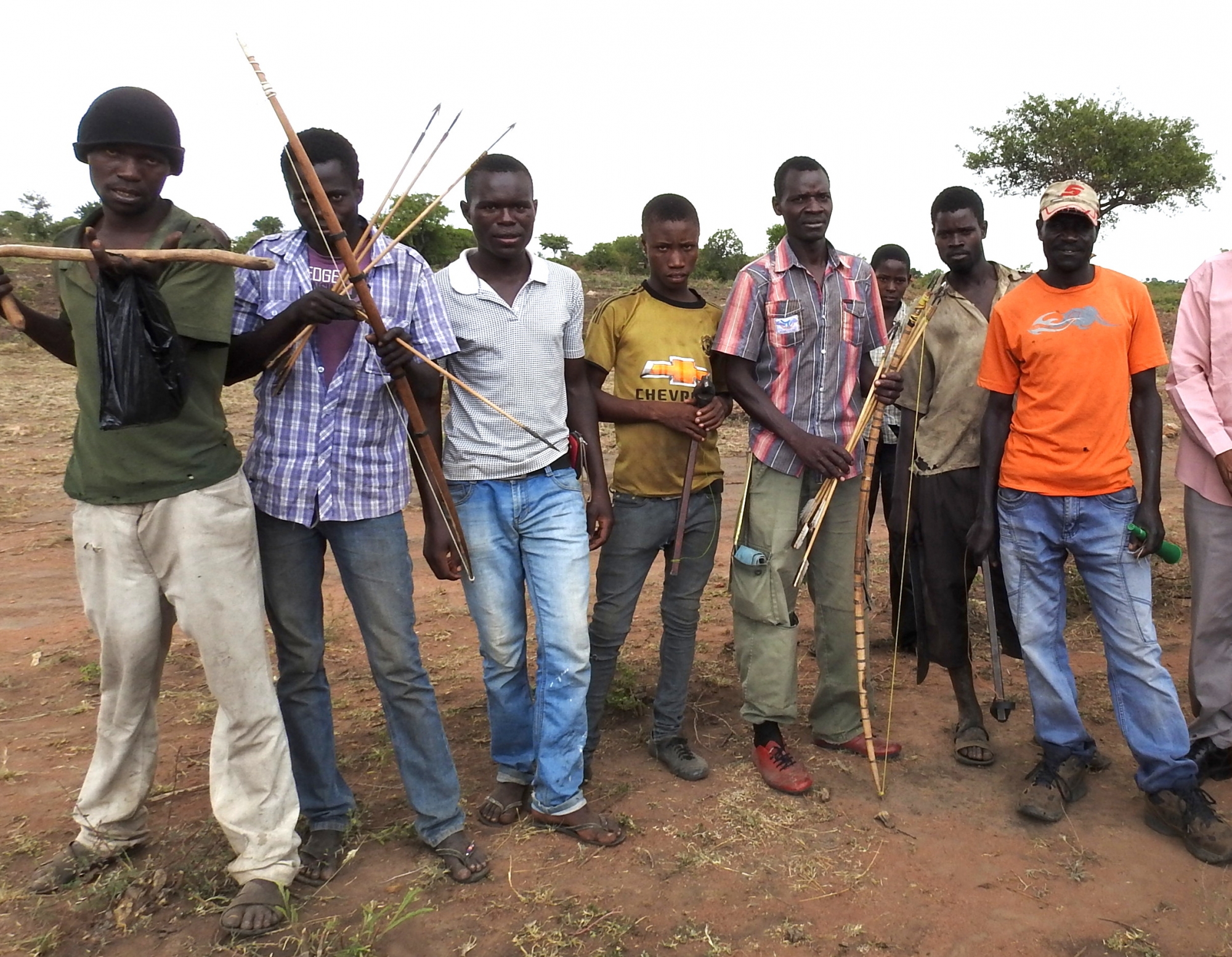
Team of young villagers
I was going to leave the village the next day, but that very evening, the elephants came back. The young men had to deal with them again throughout the night. These men do not have time to rest and cannot farm or herd livestock because most of their time is occupied by keeping elephants away from their village. There are concerns that the human-elephant conflict will not be resolved because the villagers won’t be able to continue on since they cannot make a living. One angry villager said, “If the elephants are eating away our crops, our last resort is to hunt them (In this area, hunting with bows and arrows or traps is prohibited by law).”
People in the Serengeti area are forced to protect elephants by the Tanzanian government, the tourism industry, tourists who want to see elephants, and developed countries like Japan that demand nature conservation. What can people living far away like us do to support the villagers and their coexistence with elephants? Previously, I was part of a project setting up a 32km long wired fence, and now, I’m searching for new ways to help keep elephants away from crop fields.


